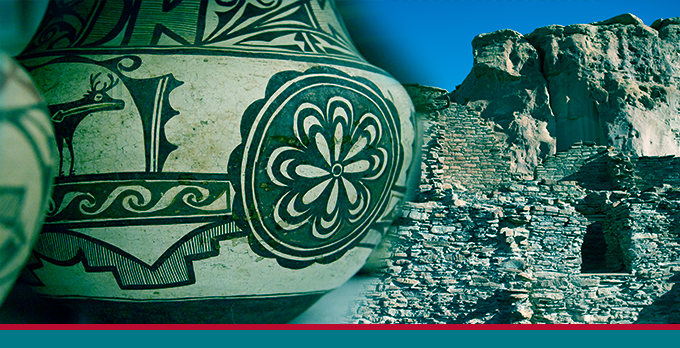Health professionals are working to improve the delivery of health care for elders and those with limited health care access in Native American communities across the country.
As health care systems seek to improve access to medical services, it has never been more important to understand how to best support community members.
Elise Trott Jaramillo, PhD, an assistant professor in The University of New Mexico College of Population Health specializing in community-based participatory research and public health disparities, studies how age and gender affect health care access among Native American elders. She has found notable gaps in the current system while also identifying potential solutions.

“This research is designed to elucidate the complex multilevel factors that affect well-being and to enhance the substantial strengths of our communities here in New Mexico.”
Jaramillo and colleagues conducted a concept mapping study involving participants from Native American communities in the Southwest. They examined how factors like provider relationships and tribal policies impact health experiences for women, men, and younger and older individuals.
Older women, who often serve as caregivers in their communities, face particular challenges balancing their own health care needs with family responsibilities and with transportation and accessibility issues, the researchers found.
Meanwhile, men aged 55-64 tend to focus more on navigating health systems individually, rather than seeking regular care and establishing relationships with health care providers. By comparing patient perspectives, the study uncovered variations in health care challenges, highlighting how demographic factors shape access to medical services for Native American communities.
Jaramillo published an analysis in the journal Social Science and Medicine in 2021 that explores the complex challenges faced by Native American elders navigating health care systems. Through in-depth interviews, the study revealed a pervasive sense of uncertainty and nervousness surrounding health care access. It also elaborates on how chronic underfunding of the Indian Health Service, bureaucratic complexities and political instability create health care insecurity for elders, often deterring them from seeking necessary medical care.
Jaramillo found that elders frequently expressed doubt about their ability to access reliable health care, stemming from high provider turnover, confusing insurance systems and ongoing national debates about health care policy. Existing interventions focusing on individual-level solutions are insufficient, she said. Systemic changes are needed to rebuild trust and secure the collective health care rights of Native American communities.
In a 2022 paper published in the journal Gerontology Jaramillo described the barriers to health care for Native American elders, as well as key protective factors. Community-level barriers included funding shortages and administrative burdens associated with the health care and insurance systems. At the same time, community resources can help elders to navigate these complex systems.
“This research is designed to elucidate the complex multilevel factors that affect well-being and to enhance the substantial strengths of our communities here in New Mexico,” she said.
Jaramillo’s findings come at a pivotal time, as the Native American elder population is growing at more than twice the rate of the general U.S. population. By 2030, the number of Native Americans aged 65 and older is projected to increase by 139%, driving the urgent need for care solutions that address aging-related health care challenges.
Alongside identifying concerns, Jaramillo's research points toward potential solutions involving community-based programs, such as health care navigators and cultural liaisons, that could help bridge many of the gaps identified.
These programs would be particularly valuable for older women who need transportation assistance and younger elders who require help establishing regular health care relationships.
“There are substantial challenges ahead for the health and well-being of our communities,” Jaramillo said. “Research and intervention that promotes self-determination, justice and the strengths of communities will be an important piece of securing well-being for all of us.”
